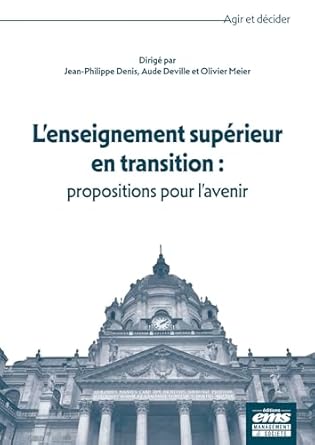The book, written by French-speaking university lecturers and researchers, traces the multiple aspects of the profound transformation of French universities and private institutions, observed over the past two decades, particularly in the field of management sciences, which make up nearly 10% of higher education students. These changes have made it possible to align French institutions and procedures with European directives and certain international practices. They intervened in particular under the effect of the new LMD (Bachelor’s, Master’s, Doctorate) curriculum in 2002, the law relating to the freedoms and responsibilities of universities (LRU) in 2007, the future investment programs in 2010, the 2013 law promoting groupings and cooperation between universities within the framework of COMUE or EPE, and more recently, measures favorable to MOOC (Massive Open Online Courses) and the research programming law (LPR) in 2020. The Old Public Administration (OPA) analyzed by Bourdieu more than a century ago has given way to New Public Management (NPM), then to New Public Governance (NPG), Public Value Management (PVM), Austerity Public Management (APM), and Sustainability Management (SM) respectful of ESG (Environmental Social Governance) principles. This transformation was marked by debates between all stakeholders, in the spirit of Critical Management Studies. The authors strive to answer the main questions raised by the application of this uninterrupted wave of reforms, and in particular, by the rapid growth of the student population. They are particularly concerned about the rise in enrollment – now the majority in the management discipline – in the 200 or so private institutions, whose level they consider to be increasingly unequal. While some of them have obtained international labels, only 65 universities and schools benefit from targeted training and diplomas recognized by the State. The authors criticize the current procedures for evaluating these schools and make recommendations to avoid the disappointment of their students and their future employers. The authors also question the conditions of good governance of academic research. They recall that the latter requires the freedom and expertise of the researcher, but also favorable political and financial conditions. It should not be exclusively “governed by numbers” (quantitative research and bibliometrics), by “academic bureaucracy”, by English as the “language of science”, by American journals, and/or by the search for corporate performance.
Jean-Jacques PLUCHART


